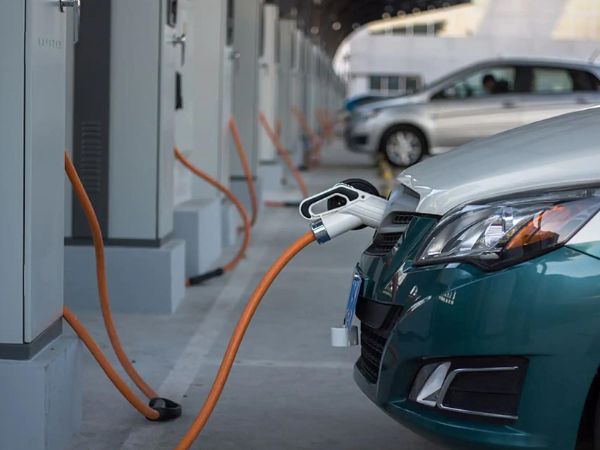Do Electric Cars Need Oil Changes? Answer Is Here

Electric cars have become increasingly popular in recent years due to their environmental benefits and lower long-term costs. However, many people still have questions about the maintenance of electric cars, particularly regarding the need for oil changes. In this article, we will explore the question, “Do electric cars need oil changes?” and provide a comprehensive guide to electric car maintenance.
Contents
- 1 Introduction:
- 2 Why Traditional Cars Need Oil Changes?
- 3 The Key Differences between Electric and Traditional Cars
- 4 Do Electric Cars Have Engines?
- 5 The Role of Lubricants in Electric Cars
- 6 Do Electric Cars Need Oil Changes?
- 7 Why Some Electric Cars Still Need Lubricants
- 8 Understanding the Different Types of Lubricants for Electric Cars
- 9 How to Check the Oil Level in an Electric Car
- 10 How to Change the Oil in an Electric Car
- 11 How Often Should You Change the Oil in an Electric Car?
- 12 Factors That Affect the Frequency of Oil Changes for Electric Cars
- 13 Signs that Your Electric Car Needs an Oil Change
- 14 What Happens If You Don’t Change the Oil in Your Electric Car?
- 15 How to Extend the Life of Your Electric Car’s Lubricants
- 16 Can You Overfill the Oil in an Electric Car?
- 17 Can You Use Synthetic Oil in an Electric Car?
- 18 How to Dispose of Used Electric Car Oil
- 19 How Much Does an Electric Car Oil Change Cost?
- 20 Do Electric Cars Need Other Types of Maintenance?
- 21 Can You Do an Electric Car Oil Change Yourself?
- 22 What to Look for When Choosing an Electric Car Mechanic
- 23 Conclusion: Understanding Electric Car Maintenance
Introduction:
The Basics of Electric Cars:
Electric cars are vehicles that run on electric motors powered by batteries. Unlike traditional cars, they do not have an internal combustion engine that requires oil to lubricate its moving parts. Instead, electric cars rely on lubricants to reduce friction in other components, such as the gearbox and bearings.
Why Traditional Cars Need Oil Changes?
Traditional cars have internal combustion engines that require oil changes to lubricate their moving parts and prevent them from wearing down or overheating. Over time, the oil in a traditional car’s engine becomes contaminated with dirt and debris, which can reduce its effectiveness and cause damage to the engine.
Auto Amazon Links: No products found. No products found. http_request_failed: A valid URL was not provided. URL: https://ws-na.amazon-adsystem.com/widgets/q?SearchIndex=All&multipageStart=0&multipageCount=20&Operation=GetResults&Keywords=Do+Electric+Cars+Have+Engines%3F|Samsung+Galaxy+s23|Why+Some+Electric+Cars+Still+Need+Lubricants|Do+Electric+Cars+Need+Oil+Changes%3F|SAMSUNG+Galaxy+S23+Ultra+Cell+Phone&InstanceId=0&TemplateId=MobileSearchResults&ServiceVersion=20070822&MarketPlace=US Cache: AAL_c68a02ece8841b7fdcf50b763495f69f
The Key Differences between Electric and Traditional Cars
One of the primary differences between electric and traditional cars is their power source. While traditional cars use gasoline or diesel fuel to power their engines, electric cars rely on rechargeable batteries. Additionally, traditional cars have complex engines with many moving parts, whereas electric cars have relatively simple electric motors.
Do Electric Cars Have Engines?
Electric cars do have engines, but they are different from traditional car engines. Electric car engines are electric motors that convert electrical energy into mechanical energy to power the car’s wheels. They do not have internal combustion, so they do not require oil changes for that reason.
The Role of Lubricants in Electric Cars
While electric cars do not require oil changes for their engines, they still require lubricants to reduce friction and wear in other components, such as the gearbox and bearings. Lubricants also help to dissipate heat and protect against corrosion.
Do Electric Cars Need Oil Changes?

While electric cars do not require oil changes for their engines, some models may still require lubricant changes for other components. For example, some electric cars have a reduction gearbox that requires lubrication, while others use sealed bearings that do not require lubrication. It is important to consult the owner’s manual for your specific model to determine if and when lubricant changes are necessary.
Why Some Electric Cars Still Need Lubricants
Even though electric car engines do not require oil changes, other components, such as the gearbox and bearings, may still require lubrication. These components can generate heat and friction, which can cause wear and damage over time. Lubricants help to reduce friction and protect these components, thereby extending their lifespan.
Understanding the Different Types of Lubricants for Electric Cars
There are several different types of lubricants that may be used in electric cars, depending on the specific components that require lubrication. These may include gear oil, transmission fluid, and bearing grease.
Auto Amazon Links: No products found. No products found. http_request_failed: A valid URL was not provided. URL: https://ws-na.amazon-adsystem.com/widgets/q?SearchIndex=All&multipageStart=0&multipageCount=20&Operation=GetResults&Keywords=SAMSUNG+Galaxy+S23+Ultra+5G|SAMSUNG+Galaxy+S23+Ultra+Cell+Phone|Do+Electric+Cars+Have+Engines%3F|Why+Traditional+Cars+Need+Oil+Changes%3F|Why+Some+Electric+Cars+Still+Need+Lubricants&InstanceId=0&TemplateId=MobileSearchResults&ServiceVersion=20070822&MarketPlace=US Cache: AAL_f0eafe438a3813993322b1059a8a3639
How to Check the Oil Level in an Electric Car
If your electric car requires lubricant changes, it is important to check the oil level regularly to ensure that it is within the recommended range. The process for checking the oil level may vary depending on the specific component but generally involves removing a dipstick or inspection cover and visually inspecting the level.

How to Change the Oil in an Electric Car
If your electric car requires lubricant changes, it is important to follow the manufacturer’s recommended procedures for changing the oil. This may involve draining the old oil, replacing it with new oil, and disposing of the old oil safely.
How Often Should You Change the Oil in an Electric Car?
The frequency of lubricant changes in electric cars can vary depending on the specific component and the manufacturer’s recommendations. It is important to consult the owner’s manual for your specific model to determine the recommended maintenance schedule.

Factors That Affect the Frequency of Oil Changes for Electric Cars
Several factors determine how often an electric car needs an oil change. The make and model of the car, the type of lubricant used, and the driver’s driving habits all affect the frequency of oil changes. In general, electric cars require less frequent oil changes than traditional cars because they have fewer moving parts and generate less heat.
Signs that Your Electric Car Needs an Oil Change
There are several signs that your electric car may need an oil change, including strange noises, a decrease in performance, and an increase in the car’s energy consumption. If you notice any of these signs, it’s best to take your car to a qualified mechanic for an oil change.
What Happens If You Don’t Change the Oil in Your Electric Car?
If you don’t change the oil in your electric car, the lubricant will become dirty and less effective over time. This can cause the car’s engine to overheat, reduce its performance, and ultimately lead to costly repairs.
How to Extend the Life of Your Electric Car’s Lubricants
To extend the life of your electric car’s lubricants, you should follow the manufacturer’s recommended maintenance schedule, avoid harsh driving conditions, and use high-quality lubricants. Regularly checking the oil level and changing it when necessary can also help keep your electric car running smoothly.
Can You Overfill the Oil in an Electric Car?
Yes, overfilling the oil in an electric car can be harmful. It can cause the engine to work harder and generate more heat, leading to damage and reduced performance.
Can You Use Synthetic Oil in an Electric Car?
Yes, synthetic oil can be used in an electric car. In fact, many electric car manufacturers recommend using synthetic oil for optimal performance and longer-lasting lubrication.
How to Dispose of Used Electric Car Oil
Used electric car oil should be disposed of properly to avoid environmental damage. It can be recycled or disposed of at a designated waste disposal facility. Some car maintenance shops may also offer oil recycling services.
How Much Does an Electric Car Oil Change Cost?
The cost of an electric car oil change can vary depending on the make and model of the car, the type of lubricant used, and the mechanic’s labor costs. On average, an electric car oil change can cost between $50 to $150.
Do Electric Cars Need Other Types of Maintenance?
Yes, electric cars require other types of maintenance, such as tire rotations, brake inspections, and battery checks. It’s essential to follow the manufacturer’s recommended maintenance schedule to keep your electric car running efficiently.
Can You Do an Electric Car Oil Change Yourself?
While it’s possible to do an electric car oil change yourself, it’s recommended to have a qualified mechanic perform the task. Electric cars require specialized tools and knowledge, and improper oil changes can cause damage to the car’s engine.
What to Look for When Choosing an Electric Car Mechanic
When choosing an electric car mechanic, look for someone with experience working on electric cars, proper certification, and a good reputation. It’s also essential to ensure they use high-quality lubricants and follow the manufacturer’s recommended maintenance schedule.
What Manufacturers Say About Electric Car Oil Changes Most electric car manufacturers recommend changing the oil in their cars every 10,000 to 15,000 miles or once a year, whichever comes first. It’s important to follow the manufacturer’s recommendations to ensure optimal performance and longevity of your electric car’s lubricants.
Conclusion: Understanding Electric Car Maintenance
In conclusion, electric cars have revolutionized the automotive industry and are becoming more popular than ever. While they have a number of differences from traditional cars, one of the biggest is the fact that they do not require oil changes in the same way that combustion engine cars do.
Electric cars still require lubricants to ensure that their components function properly, but these lubricants are typically designed to last much longer than the oil used in traditional cars. In addition, some electric cars may not require lubricants at all.
While electric cars may not require oil changes, they do require other types of maintenance, such as checking the brakes, tires, and battery, among others. It’s important for electric car owners to understand the unique maintenance needs of their vehicles and to follow the manufacturer’s recommendations to keep them running smoothly and efficiently.
Ultimately, electric cars offer a number of benefits over traditional cars, including lower emissions, reduced maintenance costs, and improved fuel efficiency. By understanding the unique needs of electric cars, owners can enjoy all of these benefits and feel confident that their vehicles are running at their best.
Q: Do all electric cars require lubricants?
A: No, some electric cars use components that do not require lubrication.
Q: Why do some electric cars still need lubricants if they don’t have engines?
A: Electric cars still have components such as bearings and gears that require lubrication to function properly.
Q: How often do you need to change the oil in an electric car?
A: It depends on the type of lubricant used and the manufacturer’s recommendations. Some electric cars may not require oil changes at all.








